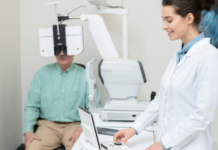Bengaluru, November 27, 2015: Mobile Health or mHealth refers to the use of mobile devices to improve health diagnosis and other aspects of healthcare. The World Health Organization has defined mHealth as a component of eHealth. It defined the term as “Medical and Public Health Practice supported by mobile devices, such as mobile phones, patient monitoring devices, personal digital assistants (PDA), and other wireless devices.” It is also refers to the accessories and applications in smart phones that support medical treatment and consultation both directly and indirectly. Specifically, mHealth apps run on smartphones and their purpose is to maintain a healthy ecosystem by supporting doctors and health facilities.
mHealth platforms are successful in offering an integrated infrastructure to the health community to collaborate among themselves as well as to connect with patients. The increasing popularity of mHealth Platforms have made mobile applications an integral part of the health industry. Adding to its augmented significance, more features are being added to these platforms offering the community better amenities. Medical referrals, health consultation and finding a suitable physician have become much easier being available at just finger taps. One of such amenities on mHealth platform, adding value to the health industry is Clinical Peer Review or Peer Discussion.
The process through which healthcare professionals scrutinize the performance of other fellow physicians is termed as Clinical Peer Review. The term is used interchangeably with Medical Peer Discussion. The process improves the overall healthcare methodology. Personal approach of doctors can be reviewed through a standard process by other experienced experts in the field and suggest measures to improve the same, if any glitches are found. The process is in fact, rewarding vice versa, as the reviewing doctors could learn new techniques from the reviewed physicians. The prime objective of a medical peer discussion is to investigate if the medical care is rendered following the standard norms and practice.
Health applications are becoming more popular in the industry among medical practitioners and medical students. As smart phones transformed as an indispensable part of our daily life, the community is increasingly using its amenities in healthcare practices. These applications have offered an amicable avenue to health experts for discussing medical outcomes and treatment procedure. Medical networking apps, exclusively for doctors have become the efficacious channels for Peer Discussion and Clinical Peer Review. A physician can share their treatments and procedures, while other physicians in the network could review and adopt those practices.
Peer Discussion in these platforms can be also initiated by patients who are being treated by a physician. In some mHealth platforms, patients are provided with the option to invite other doctors for peer discussion. This is a substantial addition to the improvement of overall healthcare ecosystem. The contents in mHealth applications can be peer reviewed by group of medical experts within the platform itself. This saves both time and resources making the healthcare process agile. Peer Discussion at these app platforms are transparent and nondiscriminatory.The traditional processes of peer review can be biased and mHealth Platforms have the potential to bring in transparency and effectiveness to the review process.
However, increasing number of mobile health apps is creating a chaotic hodgepodge. Most of the times, practitioners have to go struggle to find the right app from the plethora of apps available in the app store. The best approach to tackle this situation is to find mHealth apps that are closely integrated to the medical community. Medical Networking apps exclusively for doctors stand apart from the crowd instigating standard clinical practices. These apps have the potential to improve the industry pragmatically.
Corporate Comm India(CCI Newswire)






















